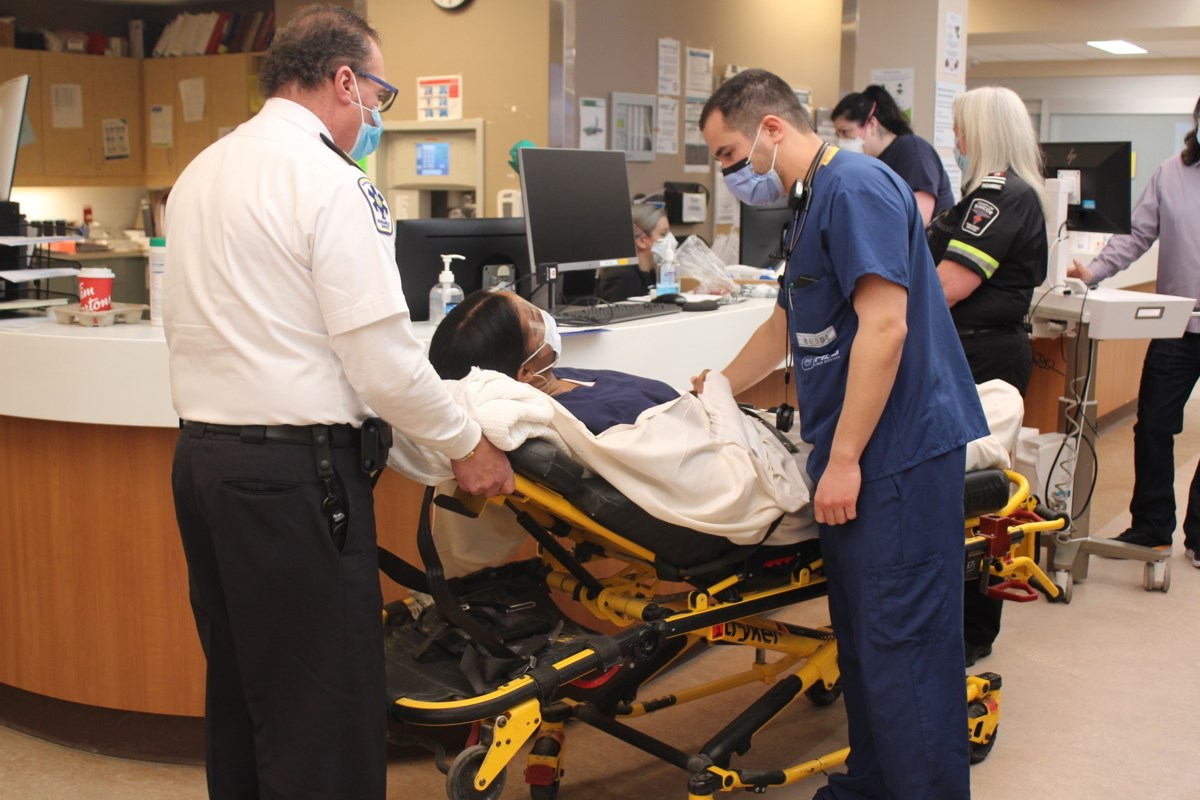
To reduce the effects of a stroke, Georgian Bay General Hospital (GBGH) now offers a new extended treatment protocol to ensure timely care for patients.
Through the new protocol, GBGH staff will assess patients for a possible stroke at the hospital and coordinate their transfer to a facility where they can receive this important treatment, previously not available at GBGH, to reduce the effects of a stroke.
“The common theory when it comes to stroke response is ‘time is brain,’ referring to the importance of quick action in recognizing the signs of stroke and seeking treatment,” GBGH vice president of clinical services and chief nursing executive Angie Saini said.
“At GBGH, we are now able to facilitate the transfer of patients to a stroke centre where they can receive EVT (Endovascualar Therapy) to remove the blood clot causing the stroke. Having access to this additional treatment option is so important for people in our community who suffer from stroke.”
A stroke occurs when blood stops flowing to any part of your brain, damaging brain cells. The effects of a stroke depend on the part of the brain that was damaged and the amount of damage done.
The new process at GBGH will be available for patients who arrive at the hospital’s emergency department with signs of a stroke occurring in the previous four to 24 hours.
These patients will be assessed via a CT (computerized tomography) scan and if a stroke is confirmed, arrangements will be made to quickly transfer the patient to a Toronto-area stroke centre. At the stroke centre, they will be considered as a candidate for EVT, using a catheter to remove the blood clot causing the stroke.
Admitted patients who suffer a stroke while at GBGH will also be eligible for transfer based on timing.
Beyond 24 hours after a stroke occurs, treatment options are vastly reduced for stroke patients, making time so critical in reducing the long-term effects of stroke. For every minute delay in treating a stroke, the average patient loses 1.9 million brain cells.
Prior to four hours (0 – 4 hours) from stroke onset, patients can be treated with tissue plasminogen activator (tPA), a drug used to break down a blood clot and restore blood flow to the brain. This treatment is highly effective, but must be delivered within several hours of the stroke occurring.
It is only available in larger regional hospitals, not in community hospitals like GBGH. For patients suspected of having a stroke and being eligible for tPA treatment, they are taken directly by paramedics to Barrie's Royal Victoria Regional Health Centre.
According to the Heart & Stroke Foundation, there are an estimated 62,000 strokes – or one every nine minutes - in Canada each year. Stroke is a leading cause of death in Canada and a major cause of adult disability.
Stroke can happen to anyone, at any age and yet, according to the Heart & Stroke Foundation, stroke disproportionately affects women – more women die of stroke, women have worse outcomes after stroke, more women are living with the effects of stroke and women face more challenges as they recover.
“Women’s bodies are not the same as men’s and stroke affects them differently at different stages of life,” the foundation said, noting the risk is higher during pregnancy and increases again as women’s bodies adapt to menopause.
“Elderly women are especially vulnerable: they are the most likely to have a stroke; their strokes are the most severe; their outcomes are the poorest; and stroke can put an end to their independence.”
Recognizing the signs of stroke early can reduce the time between stroke onset, contacting 911 and arrival at a hospital emergency department to be assessed and receive appropriate treatment. The foundation encourages people to look for the signs of stroke and act FAST to ensure life-saving treatment can begin as soon as possible.
Here's the FAST list and what to look for.
- Face: Is it drooping?
- Arms: Can you raise both?
- Speech: Is it slurred or jumbled?
- Time: Call 911 right away.
GBGH stroke patients now have access to new treatment protocol - MidlandToday
Read More

No comments:
Post a Comment